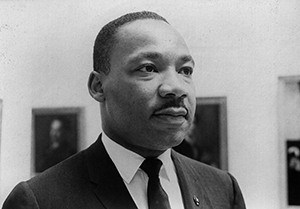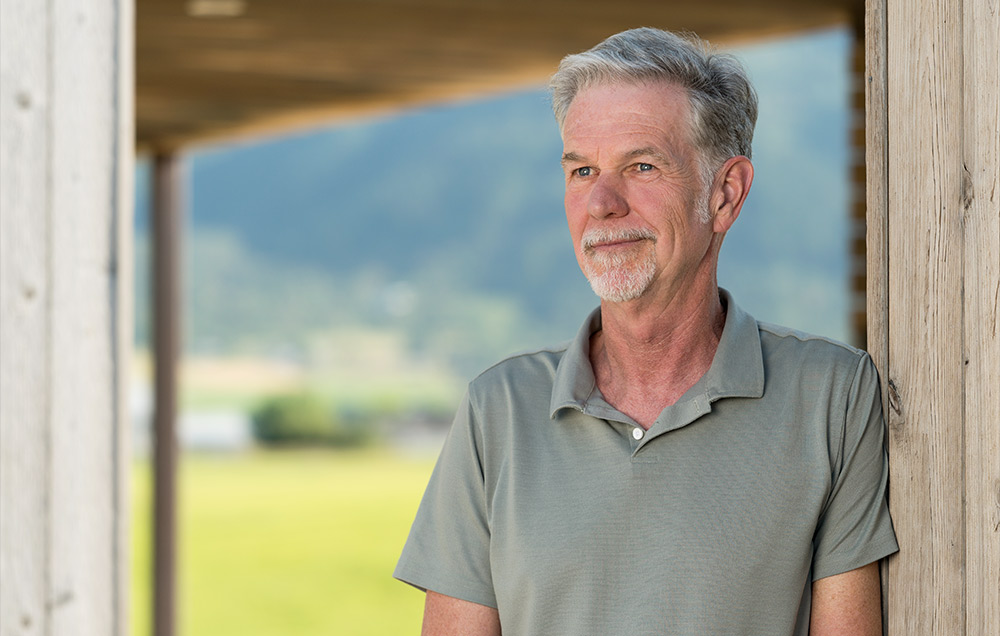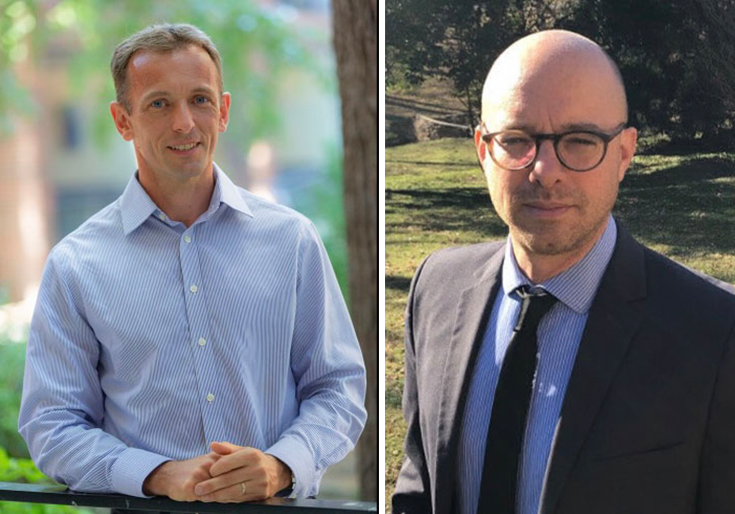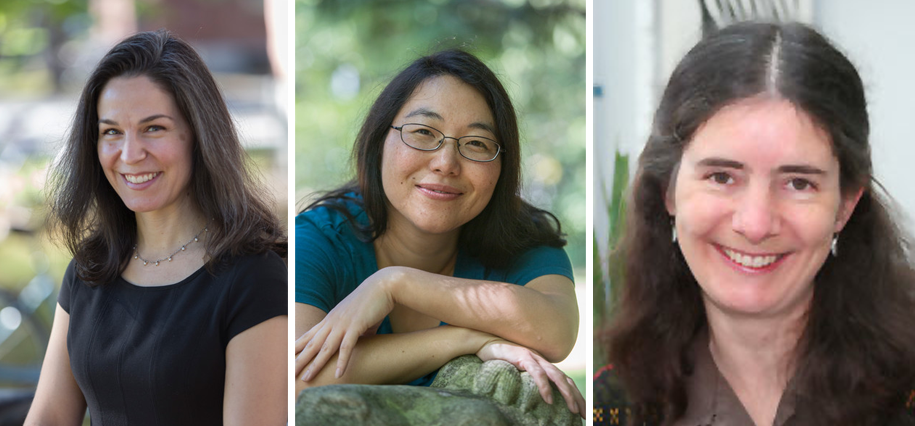Bowdoin to Commemorate Campus Visit by Dr. Martin Luther King Jr.
By Doug Cook
The informal discussion—an audio recording of which is held in Bowdoin’s George J. Mitchell Department of Special Collections & Archives—took place on the evening of May 6, 1964, immediately following King’s public address at Brunswick’s First Parish Church. King and fellow civil rights leader Bayard Rustin
During his time on campus, King toured the Bowdoin College Museum of Art to view a groundbreaking exhibition titled “The Portrayal of the Negro in American Painting.” He was originally scheduled to deliver public remarks that evening in Bowdoin’s Pickard Theater, but publicity for the talk had reached a wide audience, and it was clear that the theater would be too small to accommodate the expected attendance. A recording of King’s public remarks was discovered by the College many years later, and the King Center in Atlanta, which administers the copyright on the recording, permits Bowdoin to make the full audio available to the public each year in conjunction with the observance of Martin Luther King Jr. Day and Black History Month.
But it is the extraordinary opportunity that students had to speak informally with King after his formal public remarks that the College will commemorate with a plaque bearing his photograph and a brief description of the event. The plaque will be installed outside of Maine Lounge in Moulton Union, the site of the roundtable discussion that took place fifty-three years ago this week.
“Dr. King’s visit, which came about because students took the initiative to invite him and learn from him, was a remarkable moment for the College,” said Bowdoin President Clayton S. Rose. “Dr. King opened minds and changed lives at Bowdoin, and he had a profound effect on the course of history in our country. We are proud that he came to our College and proud to remember his impact and his example.”
Calvin G. Mackenzie of Brunswick, a member of the Bowdoin Class of 1967 and the recently retired Goldfarb Family Distinguished Professor of Government at Colby College, describes the event as a remarkable moment that has remained with him ever since.
“I had gone to the talk at the church, then gone back to my dorm,” Mackenzie remembers. “There was a snack bar in Moulton Union then. I was hungry and walked over to get something to eat. When I came in the front door, I looked into
“What followed was the most vivid conversation of my life. It went on for some time and was remarkable for many things, but most
King’s visit to Bowdoin came two months before the passage of the historic Civil Rights Act, at a time when the landmark legislation was under attack from opponents in Congress. During his Main Lounge discussion, King spoke of the importance of having a coordinated campaign of civil disobedience to keep the civil rights issue in the public eye and to bring it “before the conscience of the nation.” He also addressed a range of subjects that evening, including interracial marriage, desegregation in schools, and the lack of educational and employment opportunities for African Americans. Throughout the discussion, King stressed the importance of non-violent protest. Violence, he said, would create more social problems than it solves.
Among those present was Wayne Burton ’66 of Durham, N.H., who would go on to serve as an officer in the US Army in Vietnam, as dean of the School of Business at Salem State University, as president of North Shore Community College in Massachusetts, and as a state representative in New Hampshire.
“I asked [Dr. King] what his dream had to do with me, a white kid at a mostly white college in a mostly white state. His eyes burned into me as much as his words when he told me that, if my conscience stopped at Maine’s border, I was less of a person than I could be. He told me that I was as responsible for what happened in Birmingham, Alabama, as I was for what happened in Brunswick, Maine. The idea of an unbounded conscience remains with me to this day.”



